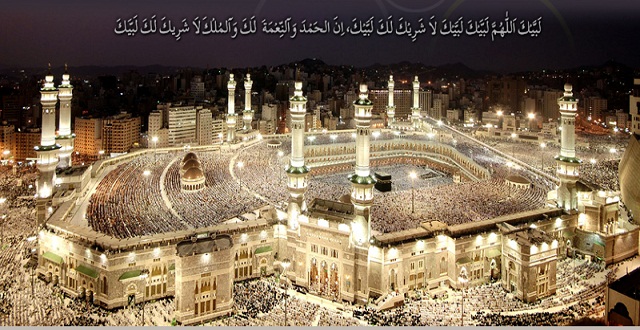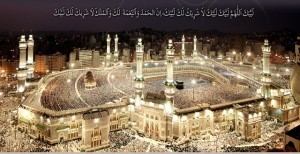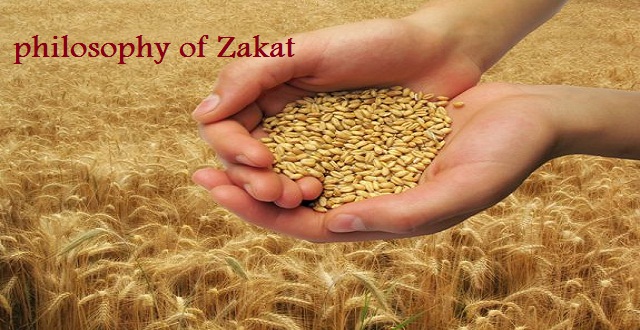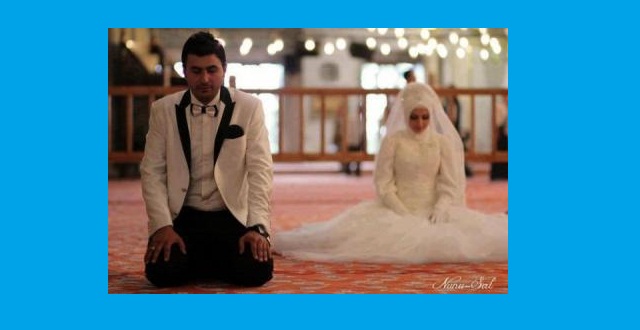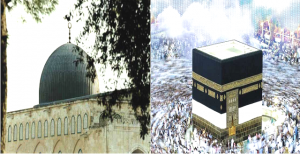What Rights does Islam offer to Women?
With the onset of Islam and its special teachings, the life of women entered into a new phase – a phase which differed vastly from the previous one and became one in which women availed of all kinds of individual, social and human rights. The basis of Islamic teachings with respect to women is exactly what we read in the Noble Qur`an:
وَ لَهُنَّ مِثْلُ الَّذِي عَلَيْهِنَّ بِالْمَعْرُوفِ
“…and they have rights similar to those against them in a just manner…”
i.e. the women possess rights and privileges in the same measure as the responsibilities which they shoulder within the society.
Islam considers a woman, just like a man, to possess a human soul, will and choice, and perceives her to be on the path of spiritual perfection, which is actually the purpose of human creation. It is for this reason that it has placed man and woman alongside each other, addressed them together:
ياَ أَيُّهَا النَّاسُ
and:
ياَ أَيُّهَا الَّذِينَ آمَنُوا
and imposed moral, educative and scientific curriculum upon both of them.
By means of verses such as:
وَ مَنْ عَمِلَ صَالِحاً مِنْ ذَكَرٍ أَوْ أُنْـثى وَ هُوَ مُؤْمِنٌ فَأُولٌئِكَ يَدْخُلُونَ الْجَنَّةَ
“…and whoever does good, whether male or female, and he is a believer, these shall enter the garden.”
Islam has promised the benefits of complete prosperity to both the sexes.
By verses such as:
مَنْ عَمِلَ صالِحاً مِنْ ذَكَرٍ أَوْ أُنْـثى وَ هُوَ مُؤْمِنٌ فَلَنُحْيِيَنَّهُ حَيَاةً طَيِّبَةً وَ لَنَجْزِيَنَّهُمْ أَجْرَهُمْ بِأَحْسَنِ مَا كَانُوا يَعْمَلُونَ
“Whoever does good whether male or female and he is a believer, We will most certainly make him live a happy life, and We will most certainly give them their reward for the best of what they did.”2
it has elucidated that every man and woman, by adhering to and implementing the Islamic curriculum, can achieve material and spiritual perfection, and possess a pure, good life that is replete with ease and comfort.
Islam considers a woman, like man, to be completely free and independent, and the Noble Qur`an, by way of verses like:
كُلُّ نَفْسٍ بِمَا كَسَبَتْ رَهِينَةٌ
“Every soul is held in pledge for what it earns.”3
Or
مَنْ عَمِلَ صَالِحاً فَلِنَفْسِهِ وَ مَنْ أَسَاءَ فَعَلَيْهَا
“Whoever does good, it is for his own soul, and whoever does evil, it is against himself.”4
It declares this freedom to be for all people – men and women.
We observe that the Islamic penal code sentences both genders with the same kind of retribution, as can be seen in the following verse and other similar verses:
الزَّانِيَةُ وَ الزَّانِي فَاجْلِدُوا كُلَّ واحِدٍ مِنْهُمَا مِائَةَ جَلْدَةٍ
“The woman and the man guilty of adultery or fornication – flog each of them with a hundred whippings.”5
On the other hand, since independence is an inevitable consequence of (free) will and choice, Islam has also extended this independence to all monetary privileges, permitting women to enter into various kinds of monetary transactions and regarding her as the rightful owner of her income and investment. In Suratul Nisa we read:
لِلرِّجَالِ نَصِيبٌ مِمَّا اكْتَسَبُوا وَ لِلنِّسَاءِ نَصِيبٌ مِمَّا اكْتَسَبْنَ
“Men shall have the benefit of what they earn and women shall have the benefit of what they earn.”6
In view of the fact that the word اکتساب (used in the verse) – unlike the word کسب – is used to denote acquisition of wealth, the use of this word conveys the meaning that the wealth which is acquired becomes associated with the person acquiring it7, and also taking into consideration the general rule:
أَلنَّاسُ مُسَلِّطُونَ عَلى أَمْوَالِهِمْ.
“All the people have authority over their own wealth”,
we can easily infer that Islam holds the fiscal independence of women in great esteem and does not differentiate between a man and a woman in this regard.
In short, Islam regards a woman as a fundamental element of the society and thus, she should not be treated as an entity that is lacking in will, and dependant upon or in need of a guardian.
One Should not Err With Respect to the Meaning Of ‘Equality’
The only thing that needs be taken into consideration – to which Islam has paid special attention but which some individuals reject out of excessive and imprudent sentimentality – is the issue of physical and psychological difference between man and woman, and the difference in their responsibilities.
We just cannot refute the reality that there exist vast physical and psychological differences between the two sexes, and since these are mentioned in various books it is not necessary that we repeat them here. However, a summary of all of them is as follows:
A woman is the base for man’s existence since the development of the children take place within her arms; hence just as she has been created physically to handle the tasks of bearing, developing and educating the coming generations, psychologically too she is in possession of a greater share of feelings and sentiments.
With the existence of these vast differences, can it be said that men and women must be in step with each other in all matters and should be absolutely equal in all affairs and issues?
Should we not champion the cause of justice in the society? But is justice other than that every person should adhere to his own responsibility and enjoy the benefits of the existential distinctions present within him?
Thus, is it not contrary to justice to involve and engage a woman in tasks that do not match and harmonize with her physical and psychological setup?
Here we observe that Islam, even as it voices support for justice and equality, grants precedence to man in some of the social tasks which demand asperity or meticulousness – such as guardianship of the house – and has allowed the woman to function as an assistant.
Both a ‘house’ and a ‘society’ are in need of an administrator, and the reins of administration should eventually end up in the hands of one person or else it would result in contest, chaos and confusion.
Under these circumstances, who is better suited for the task – a man or a woman? Impartial and unbiased computations reveal that the structural state of man demands that the administration and management of the family should be placed upon the man while the woman should act as his assistant.
Even though there are some who insist on ignoring these realities, the state of life prevalent in the present-day world and even within communities that have granted women complete freedom and equality, reveal that in practice the issue is exactly as has been stated above, although in speech the issue may be made to appear differently.8
The Spiritual Worth of Man and Woman
The Noble Qur`an perceives man and woman – with regards to their presence before Allah and with respect to achieving spiritual ranks under similar conditions – to be equal. It refuses to consider the dissimilarity in their sexes and the difference in the structure of their bodies, (which consequently manifest in the variation in their social responsibilities), as being indicative of a difference in them with regards to the achievement of human perfection; rather, in this regard, it considers them to be on par with one another and hence mentions them together.
Numerous verses of the Noble Qur`an were revealed at a time when a great number of the communities of the world had been reluctant to recognize the female species as a human being, regarding her as an accursed entity and a source of sin, deviation and death!
Many of the ancient communities even held the belief that a woman’s worship was not acceptable in the eyes of Allah. Many of the Greeks considered a woman to be a defiled entity and an evil handiwork of Satan. The Romans and some of the Greeks believed that basically females did not possess a human soul and as such, the human soul was specifically confined to the males!
Interestingly, till recently, Christian scholars in Spain engaged themselves in discussing whether women, like men, possessed human souls or not, and whether or not their souls would continue to live eternally after their deaths. After their discussions they eventually concluded that since a woman’s soul is an isthmus between an animal and a human soul, it cannot be eternal, save for the soul of Maryam J.
Here it becomes apparent how far from reality the allegation is, which some ignorant individuals level against Islam that it is a religion of males and not females. Generally speaking, if, due to physical and sentimental differences which exist within males and females, some differences in respect of social responsibilities are observed in the Islamic Laws, it does not by any means, diminish the spiritual worth of a woman. There exists no difference between a man and a woman in this regard; the doors of success and prosperity lay equally open for both of them, just as we read in the Qur`an:
بَعْضُکُمْ مِنْ بَعْضٍ
“All are from one species and one society.”





